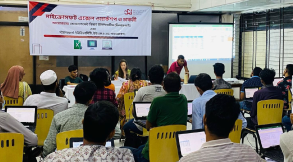We develop an equilibrium model of the labour market to investigate the joint evolution of gender gaps in labour force participation and wages. We do this overall and by task-based occupation and skill, which allows us to study distributional effects. We structurally estimate the model using data from Mexico over a period during which women's participation increased by fifty percent. We provide new evidence that male and female labour are closer substitutes in high-paying analytical task-intensive occupations than in lower-paying manual and routine task-intensive occupations. We find that demand trends favoured women, especially college-educated women. Consistent with these results, we see a widening of the gender wage gap at the lower end of the distribution, alongside a narrowing at the top. On the supply side, we find that increased appliance availability was the key driver of increases in the participation of unskilled women, and fertility decline a key driver for skilled women. The growth of appliances acted to widen the gender wage gap and the decline of fertility to narrow it. We also trace equilibrium impacts of growth in college attainment, which was more rapid among women, and of emigration, which was dominated by unskilled men. Our counterfactual estimates demonstrate that ignoring the countervailing effects of equilibrium wage adjustments on labour supplies, as is commonly done in the literature, can be misleading.
STEG Working Paper Series
The Distribution of the Gender Wage Gap: An Equilibrium Model
Sonia R. Bhalotra, Manuel Fernández, and Fan Wang

Related content












































































